- info@studentmatter.net
- MON - SUN: 9:00 - 18:00
The USA is the world’s foremost economic and military power, with global interests and an unmatched global reach. America’s gross domestic product accounts for close to a quarter of the world total, and its military budget is reckoned to be almost as much as the rest of the world’s defence spending put together.
The country is also a major source of entertainment: American TV, Hollywood films, jazz, blues, rock and rap music are primary ingredients in global popular culture. The United States originated in a revolution which separated it from the British Crown. The constitution, drafted in 1787, established a federal system with a division of powers which has remained unchanged in form since its inception.
he USA has the world’s largest international student population, with more than 1,000,000 students choosing to broaden their education and life experience in the United States. Nearly 5% of all students enrolled in higher-level education in the USA are international students, and the numbers are growing. From the mid-1950’s, when international student enrollment was only just reaching 35,000, international education in the USA has come a long way.

Every year, the number of international students in the US rises as more and more students choose the Unites States as the place they wanted to broaden their experience and continue their education. In fact, the US is now the most popular country for international students. Why do so many international students choose U.S. colleges and universities?
The United States has one of the world’s finest university systems, with outstanding programs in virtually all fields. At the undergraduate level, excellent programs exist in traditional disciplines, as well as in professional fields. At the graduate level, students have the opportunity to work directly with some of the finest minds in their field of study, with the chance to become involved with exclusive research and educational opportunities. U.S. degrees are recognized throughout the world for their excellence.
You may be able to gain valuable experience through teaching and/or research while you help to finance your education in the U.S., particularly if you are a graduate student. Many graduate programs offer training and teaching opportunities that enable students to become teaching assistants to undergraduates and/or research assistants on special projects exploring different aspects of your field of study.
International students are some of the most valued teachers and researchers in U.S. universities because they bring new skills and ideas to the classroom and library or laboratory. This practical component of your education will prove useful in your future career, and may give you insights into your field that would not be possible through course study alone.
Although many programs are highly structured in that specific coursework requirements must be met, you will generally be able to find a wide variety of course choices to meet those requirements. For example, liberal arts coursework for an undergraduate program will include classes in languages and mathematics, but you will be given a wide variety of classes which fit those requirements, and the freedom to decide which classes best match your interests.
At the advanced stages of a degree, or if you are pursuing a graduate degree, you will be able to tailor your coursework to fit your specific academic goals, needs and interests. When you choose topics for independent study for a graduate thesis or dissertation, you can emphasize ideas that are important to you, your field and your country.
Studying in the United States is a rewarding experience, but navigating your way through day-to-day issues can be a challenge. Many international students find that the college and university international student office is a great resource when it comes to adapting to a culturally and academically different environment. The mission of the international student office is to assist students like you, and there is often a wide range of student services that they provide
An orientation program upon your arrival is just the start of the many programs and benefits of the university international student office – throughout your time in the U.S., they can help answer questions you may have regarding your visa status, financial situation, housing, employment possibilities, health concerns and more. If you choose to complete your degree in the United States, this office often provides resume and employment assistance as graduation nears. The international student office will be an invaluable source of information and help as you make the transition into academic and cultural life in the United States.
Experience in an international setting is a marketable commodity. Many employers seek the wide range of knowledge, adaptability and experience that international students acquire by studying in the United States. Companies in the U.S. are increasingly seeking to become a strong presence in the global marketplace. They often look to hire employees who not only have multi-cultural language skills, but those who can also help communicate, negotiate and conduct business across different cultures.
The United States is not the only country seeking strong candidates when hiring; international students are in high demand elsewhere, as well. In recent years, international companies have become much more proactive in recruiting from the pool of strong international student graduates. Your long-term career prospects can be enhanced by your experiences through the development of self-confidence, independence and cross-cultural skills – attributes which are in high demand with employers worldwide.
Campus Life Experience
When you continue your studies in the U.S., you are making a choice to broaden not only your educational opportunities, but your cultural experience, as well. Whether you attend a small, private college in a small town or a university situated in the middle of a large urban area, most universities offer a variety of student clubs and organizations to match the wide array of student interests. You can have the opportunity to immerse yourself in American culture, meeting new people and making new friends, through different organizations and associations.
International students often find that the international student office is a good starting point for campus offerings, as well as the campus student center. Your time studying abroad can be enriched by taking part in the social and cultural scene surrounding you, and you will likely find that U.S. campuses provide a rich variety academic, cultural and athletic activities that add new dimensions to your life.
As you know, your education will extend far beyond what you learn in the classroom. Preparing for an overseas adventure is really an education in itself, taking care of all details with regard to admissions offices, enrollment procedures, immigration, transferring funds…
By most international students’ accounts, all of the preliminary work is well worth it; they are quite satisfied with their U.S. education. Students just like you also report that the best part of their experience in the United States is traveling — enjoying a new environment outside of the academic world.
Most international students plan to explore parts of the country before or after the academic semester. Sometimes they opt to travel during school holidays such as Fall Break, Thanksgiving, Christmas or Spring Break; check your own school’s calendar for specific vacation date and be sure to visit the student travel center for your travel needs.
It is important to plan a general itinerary before you leave your home country for the States, if you want to budget properly and take advantage of lower costs by purchasing your travel tickets in advance. Try to use a combination of airplanes, trains, buses and automobiles to get the most out of your travels — and your budget! Amtrak, for example, is the United States’ primary passenger rail provider.
The Internet has made it easier than ever to gather information about your travel options. We also have combined some of the best student travel resources into our student travel center homepage where you can find great student airfares, hotels and much more.
Once you decide where you’ll go and how you’ll get there, consider your accommodations options. Perhaps the best option for student travelers is a youth hostel, where men and women sleep separately in dormitory-style rooms. Hostels cost less than most hotels, and provide the added opportunity to meet other travelers from around the world! For more information on hostels please see our international youth hostel section.
Like most places around the world, lodgings situated a few miles out from a U.S. city are generally less expensive than the ones in the heart of downtown. Compared to hotels, motels are typically less costly and located near main highways. Here a few sites of discounted hotel and motel chains, along with their toll-free telephone numbers you can use once you arrive in the States:
A Bed and Breakfast is a private home with one or more rooms available to travelers. Overnight stays include a morning meal. B and B prices are generally more expensive than hostels or motels, but the glimpse into American home life may be worth the few extra dollars. One of the most comprehensive websites is http://www.bbonline.com
While making your travel plans, make sure to check out your school’s Office of International Studies website. Most schools will offer information concerning travel arrangements in the immediate area, such as nearby airports, shuttle/taxi services, and temporary housing options. If you’re having trouble finding information on your school’s site, contact the office directly to see if they have recommendations for international students traveling to the US
Food: The meat pies and pasties had their connection to what was considered the staple foods of the 1800s:
Safety: While Australia is generally a safe place to live and study, it is still important that you take precautions to reduce the chance of an incident occurring. The 2011 OECD Better Life Index rated Australia 9.3 out of 10 for safety, one of the highest ratings awarded to any country. Following your common sense and best practices will ensure you remain safe and healthy, whether you are handling emergencies, personal and home safety, or natural elements such as a sun, water, and fire.
Welfare: Universities provide free and confidential support and assistance to help students develop practical skills to better manage time, money and personal issues. Officials’ help students develop strategies to concentrate on studies and get the most out of university life.
Health: Healthcare in Australia has been steadily improving over the last ten years. Visitors in Australia under a student visa are required to take out Overseas Student Health Cover (OSHC) during their stay.
Transport: The transport options available in Australia include buses, trains, trams and ferries. Your access to these transport services will vary depending on where you live. You will also be able to access private and public car services from taxis to hired limousines, available to take you from door to door. If you hold a current drivers license in your home country, you might be able to drive in Australia without sitting for any further driving tests. But remember that many state and territory governments require you to get an Australian drivers license if you are there for more than three months.
Once you have received an offer from the University and have decided on how to fund your studies abroad, you can apply for student visa. Getting visa is one of the most critical steps and you will definitely want it before your program commences. If you represent yourself in a befitting manner, then the chances of rejection of Visa are very slim. Our education counsellors are experts in student visa and they provide you professional assistance through this complex process of visa documentation, application and interview. To get you started, we have outlined few basics of Student Visa process. Contact us to discuss how to process visa application.
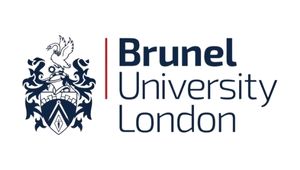

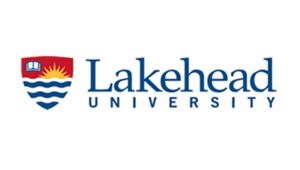
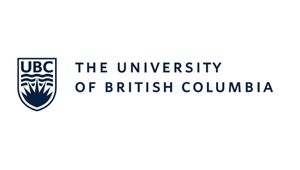
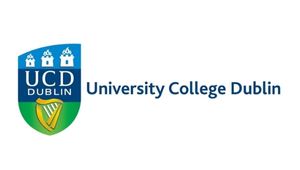
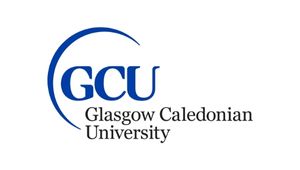
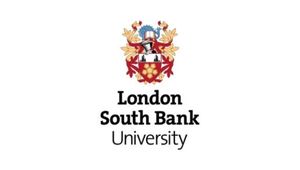
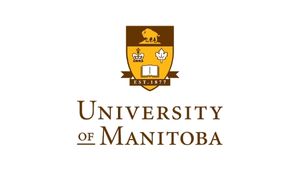
Subscribe our newsletter to get our latest update & news
WhatsApp us